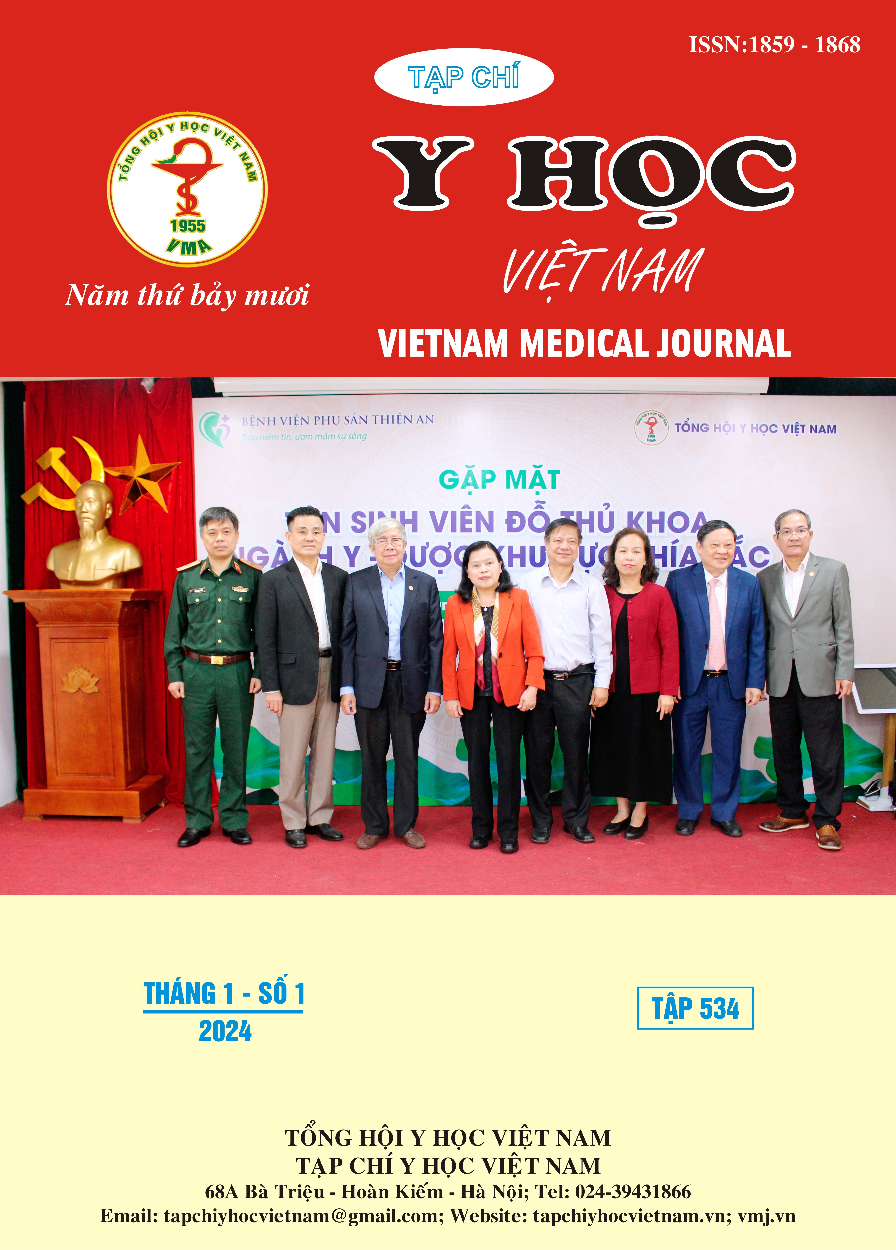ESTABLISHING THE REAL-TIME PCR HIGH RESOLUTION MELTING PROCEDURE FOR DETERMINING GENE DPYD VARIANT DPYD*2A ASSOCIATED WITH FLUOROPYRIMIDINES METABOLISM
Main Article Content
Abstract
Introduction: A single nucleotide polymorphism in the DPYD gene, DPYD*2A, which leads to a deficiency of the fluoropyrimidines metabolizing enzyme dihydropyrimidine dehydrogenase (DPD), is strongly associated with fluoropyrimidine-induced severe and life-threatening toxicity. The Clinical Pharmacogenetics Implementation Consortium (CPIC) has recommended cancer patients should be identified the variant DPYD*2A before being treated with fluoropyrimidines. Despite the necessity of determining the DPYD*2A variant in individual fluoropyrimidines dose adjustment, due to its high price, most of patients cannot easily afford for genetic examinations. This disadvantageous may lead to the hesitation and procrastination in indicating molecular testing and in adjusting the fluoropyrimidines starting dose in clinical. In order to overcome the drawback, establishing a convenient, time-saving, affordable and reliable molecular procedure, real-time PCR high resolution melting (HRM), to identify the DPYD*2A variant is timely and crucial not only for medical administrations to efficiently manage the fluoropyrimidine poisonning situations but also for cancer patients to relieve economic burden of genetic examinations. Objective: Establishing a molecular procedure using real-time PCR HRM to identify the DPYD*2A variant. Method: Constructing the control recombinant plasmids to simulate the DPYD*2A variant genotypes by performing site-directed mutagenesis using overlap extension PCR and gene cloning method. Utilizing bio-informatics softwares to design a pair of primers amplifying the target DPYD gene sequence and verifying its specificity in practical laboratory condition. Evaluating the accuracy and the ability of the established real-time PCR HRM procedure in discriminating each of the DPYD*2A genotypes. Result: Successfully constructed recombinant plasmids containing G allele (wild-type) and A allele (DPYD*2A) to serve as genotype control samples. Successfully established a real-time PCR HRM procedure identifying the DPYD*2A variant with: (i) High discriminability of DPYD genotypes when using derivative melt curves, aligned melt curves and difference plot to analyze the PCR product melting temperature; (ii) High accuracy of Tm value with %CV from 0.05 to 0.06%. Conclusion: The established procedure could be applied to identify DPYD*2A variant in research. Initially applying this procedure to investigate the genetic characteristics and the frequency of DPYD*2A in the Vietnamese population.
Article Details
References
2. Caudle K, Thorn C, Klein T, et al. Clinical Pharmacogenetics Implementation Consortium guidelines for dihydropyrimidine dehydrogenase genotype and fluoropyrimidine dosing. Clinical Pharmacology Therapeutics. 2013; 94(6):640-645. doi: 10.1038/clpt.2013.172.
3. Baudhuin LM, Lagerstedt SA, Klee EW, Fadra N, Oglesbee D and Ferber MJJTJOMD. Confirming variants in next-generation sequencing panel testing by Sanger sequencing. 2015; 17(4):456-461.
4. Naushad SM, Hussain T, Alrokayan SA and Kutala VK. Pharmacogenetic profiling of dihydropyrimidine dehydrogenase (DPYD) variants in the Indian population. The Journal of Gene Medicine. 2021; 23(1):e3289.
5. Hussain H and Chong NF-M. Combined overlap extension PCR method for improved site directed mutagenesis. BioMed research international. 2016; 2016.
6. Ncbi. Primer-BLAST. Access date: 31/08/2023. https://www.ncbi.nlm.nih.gov/tools/primer-blast/ index.cgi.
7. University of Utah. uMelt Quartz. Access date: 02/09/2023. https://www.dna-utah.org/ umelt/quartz/um.php.
8. Thermofisher Scientific. Precision in qPCR. 2021. Access date: 01/09/2023. https://www. thermofisher.com/vn/en/home/life-science/pcr/ real-time-pcr/real-time-pcr-learning-center/gene-expression-analysis-real-time-pcr-information/ precision-qpcr.html.


